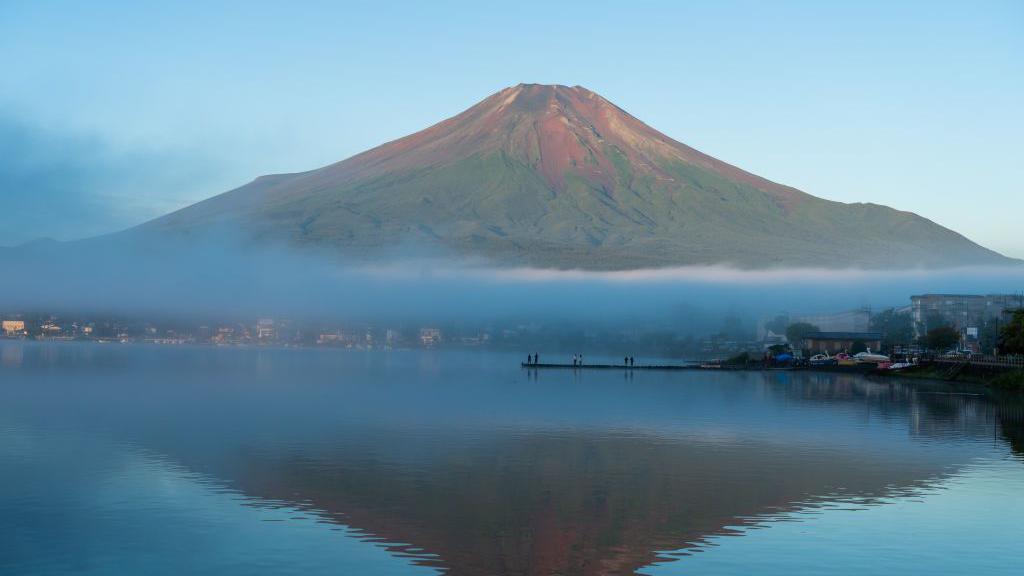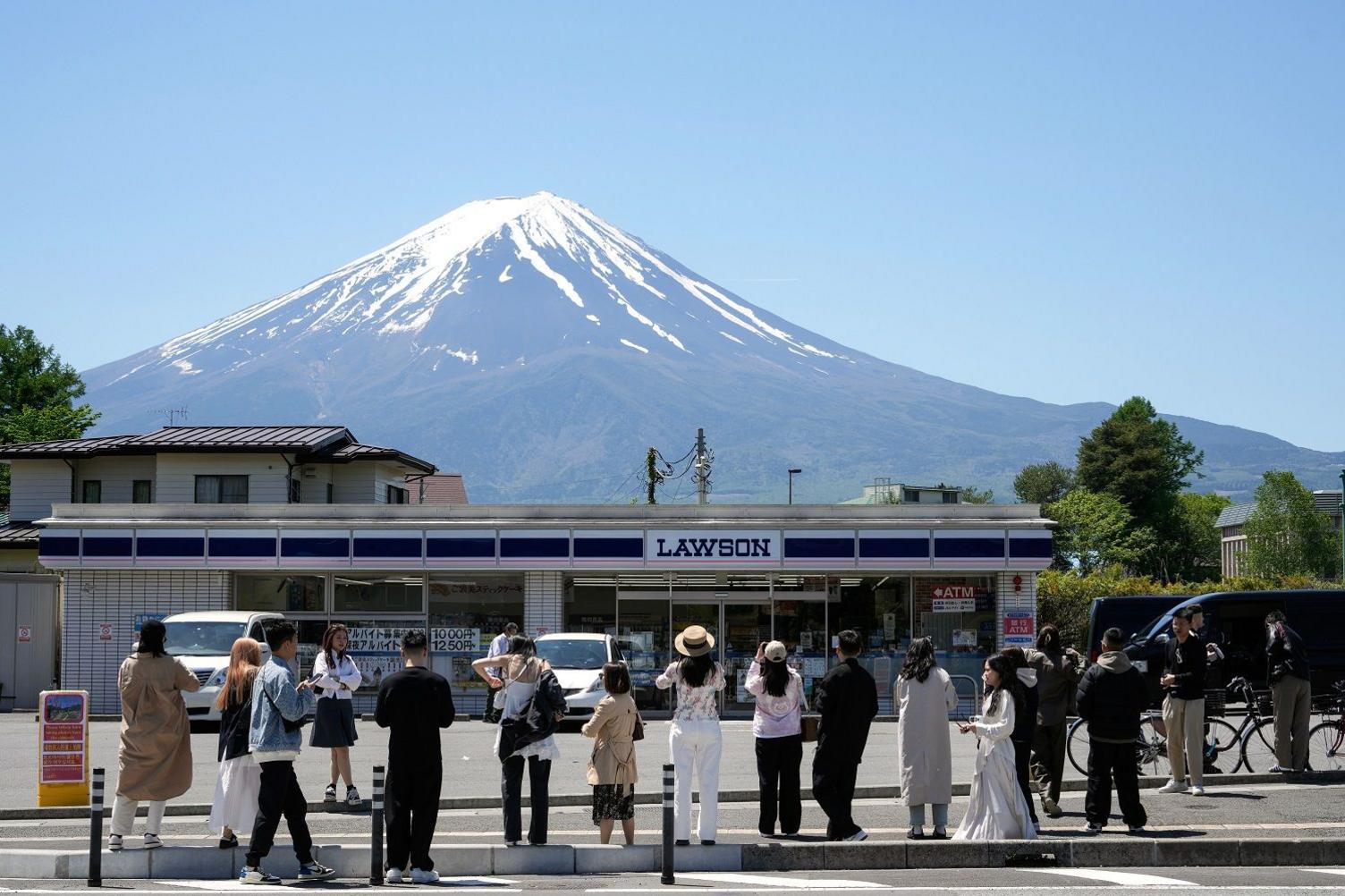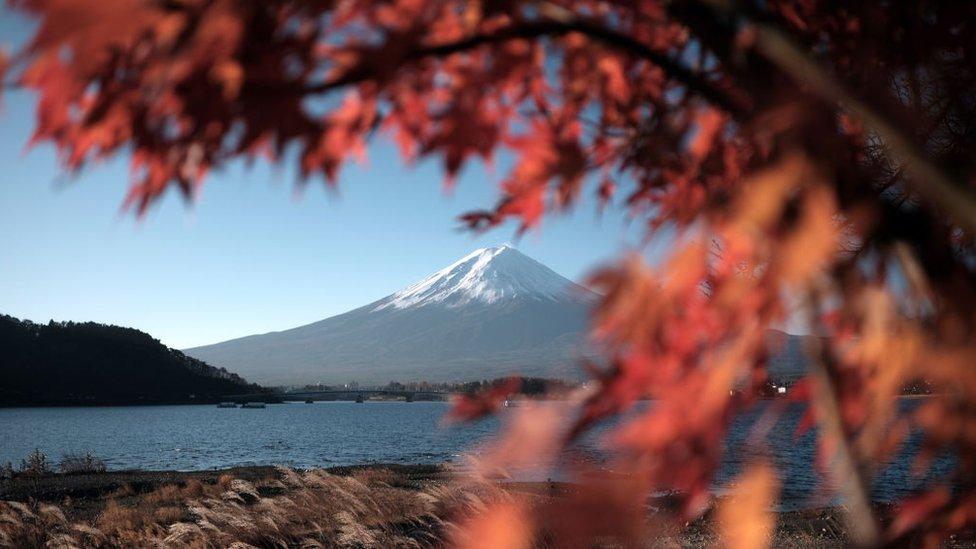Mount Fuji remains snowless for longer than ever before

A file photo of Mount Fuji seen without snow in September 2023
- Published
Mount Fuji is still without snow, making it the latest time in the year the mountain has remained bare since records began 130 years ago.
The peaks of Japan's highest mountain typically get a sprinkling of snow by early October, but unusually warm weather has meant no snowfall has been reported so far this year.
In 2023 snow was first seen on the summit on 5 October, according to AFP news agency.
Japan had its joint hottest summer on record this year with temperatures between June and August being 1.76C (3.1F) higher than an average.
In September, temperatures continued to be warmer than expected as the sub-tropical jet stream's more northerly position allowed a warmer southerly flow of air over Japan.
A jet stream is a fast-flowing current of air that travels around the planet. It occurs when warmer air from the south meets cooler air from the north.
Nearly 1,500 areas had what Japan's Meteorological Society classed as "extremely hot" days - when temperatures reach or exceed 35C (95F) last month.
The temperature has to be around freezing for rain to turn into snow.
October has seen the heat ease slightly, but it has still been a warmer than average month.
However, approaching November without snowfall marks the longest wait in the year for a snowcap on the summit since data was first collected in 1894.
The previous record of 26 October has been seen twice before in 1955 and 2016, Yutaka Katsuta, a forecaster at Kofu Local Meteorological Office told AFP.
While a single event cannot automatically be attributed to climate change, the observed lack of snowfall on Mount Fuji is consistent with what climate experts predict in a warming world.
Mount Fuji, south-west of Tokyo, is Japan's highest mountain at 3,776m (12,460 ft).
The volcano, which last erupted just over 300 years ago, is visible from the Japanese capital on a clear day.
It is featured prominently in historic Japanese artwork, including wood blocks prints.
Last year, more than 220,000 people made the ascent to the peak between July and September.
Additional reporting by Tomasz Schafernaker
Related topics
- Published21 May 2024

- Published5 March 2024
